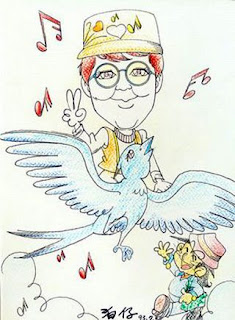Ku Yenlin 顧燕翎
Monday, Jul 12, 2010, Page 8 Taipei Times
On July 1, after several 11-hour sessions, the UN General Assembly voted unanimously to create a new entity, UN Women, subtitled “UN Entity for Gender Equality and the Empowerment of Women,” by combining four existing administrative units dealing with women’s issues. A new post of under-secretary general, very likely a woman and No. 3 in the UN chain of command, will be created to head the new body.
In the meantime, the UN Department of Economic and Social Affairs (DESA) also decided to have gender equality and the empowerment of women as one of its annual themes. On July 2, after a week of intensive discussions, The DESA declared it would concentrate its efforts on improving women’s access to the formal economic system and participation in decision-making, eliminating violence against women, increasing education opportunities, stamping out illiteracy, improving women’s health, ending sexual discrimination and increasing access to microcredit. Hamidon Ali, president of ECOSOC, explained, "Gender equality is crucial to all aspects of economic growth."
The UN has always been a major platform for the women’s movement. As early as its inception in 1946, the UN established the Commission on the Status of Women(CSW) to advocate gender equality. Now the UN Women, as a result of the collective efforts of women’s groups worldwide, will provide the UN with more clout in addressing women’s problems. With the increase in its budget from the original US$200 million to $500 million, we hope it will more effectively lobby for better laws and monitor the implementation of women’s policies at the international level. This is not only cause for celebration but also brings women back to the center stage at a time when “gender discourse” becomes dominant in academic studies as well as in politics. Some women’s groups in Taiwan have sought to replace the term “women” with “gender” in public discourse and even openly criticized the use of the terms “men/women” or “both sexes” as out-dated.
The 1995 Fourth World Conference on Women in Beijing featured the new strategy of “gender mainstreaming” as one of the methods to achieve gender equality. “Gender” is conceived to be politically correct because it connotes the social construction of inequalities and allows infinite diversities of gender identities. However, gender, like age, is an abstract concept of classification. Gender, in itself, does not correspond to any human being or any lived experience. Furthermore, as an all-inclusive term, it easily obscures women as a group from public and political perceptions. Without any inherent meaning, it makes room for all kinds of manipulations, is open to subjective interpretations, poses less threat to the meanstream, and therefore, acceptable and strategically useful.
Since gender is simply a conceptual category without corresponding bodies in reality, it would be practically difficult to allocate rights and duties to “gender.” Consequently, in official UN and EU documents and statistics, the terms “gender,” “both sexes” and “men/women” are often used interchangeably or simultaneously. Ultimately the goal of gender equality is the abolition of both gender stereotypes and sexual division of labor. Without such polarized stereotypes, there will not be the problems of transgender identities and expressions. In both theory and practice, then, the terms “gender” and “women” can coexist and be used to interpret each other.
When US President Barack Obama took office, two of his earliest actions were to make Melanne Verveer the first US Ambassador-at-large for Global Women’s Issues and set up the White House Council on Women and Girls. Now that the UN has further demonstrated its resolve to raise the status of women’s institution, reflecting the importance of women’s issues and policies in today’s global politics, one can only hope that the government and local women’s groups will also show more concern for women’s subjectivity in Taiwan.
original translation on Taipei Times
http://www.taipeitimes.com/News/editorials/archives/2010/07/12/2003477696


遊民畫家泊仔送的畫像,在左圖中白鳥的右下方,就是他自己。
我想我是一個認真的人,有時候到了嚴肅的地步。還記得剛入小學的第一課就是ㄅㄆㄇㄈ,老師說下週要考,可是一週過去了,我還沒全學會,急得不得了,回家就發燒了,媽媽還得幫我惡補。下星期老師竟然完全忘了考試這回事!而我至今餘悸猶存。
最近一位好友退休,她在嚴肅這件事上比我更勝一籌,在我們為她舉行的餐會中一絲不苟地討論未來生活的意義,我勸她不必急,不妨先混一混。李豐(寫《我賺了四十年》的那位台大醫師)在電話上聽了我的轉述,大笑道:「你混得怎樣?」我說:「不錯啊!」她卻不以為然:「我聽妳聲音就知道妳還是那樣,說話太快了!」幾十年來她一直勸我慢下來。慢才能品味生活,才能靜攬人生,才能修鍊身心。
不僅需要調整步調,我也想改變自己的寫作風格,輕鬆一點,閒適一點,更多一點生活,多一點感覺。渴望有自己的部落格,不被字數、時尚、市場、刊物風格、主編好惡綁住。大部分是為自己寫吧,也為了分享,至於未來,就交給上天了。
email: yenlinku@mail2000.com.tw
2010-07-14
訂閱:
張貼留言 (Atom)






沒有留言:
張貼留言